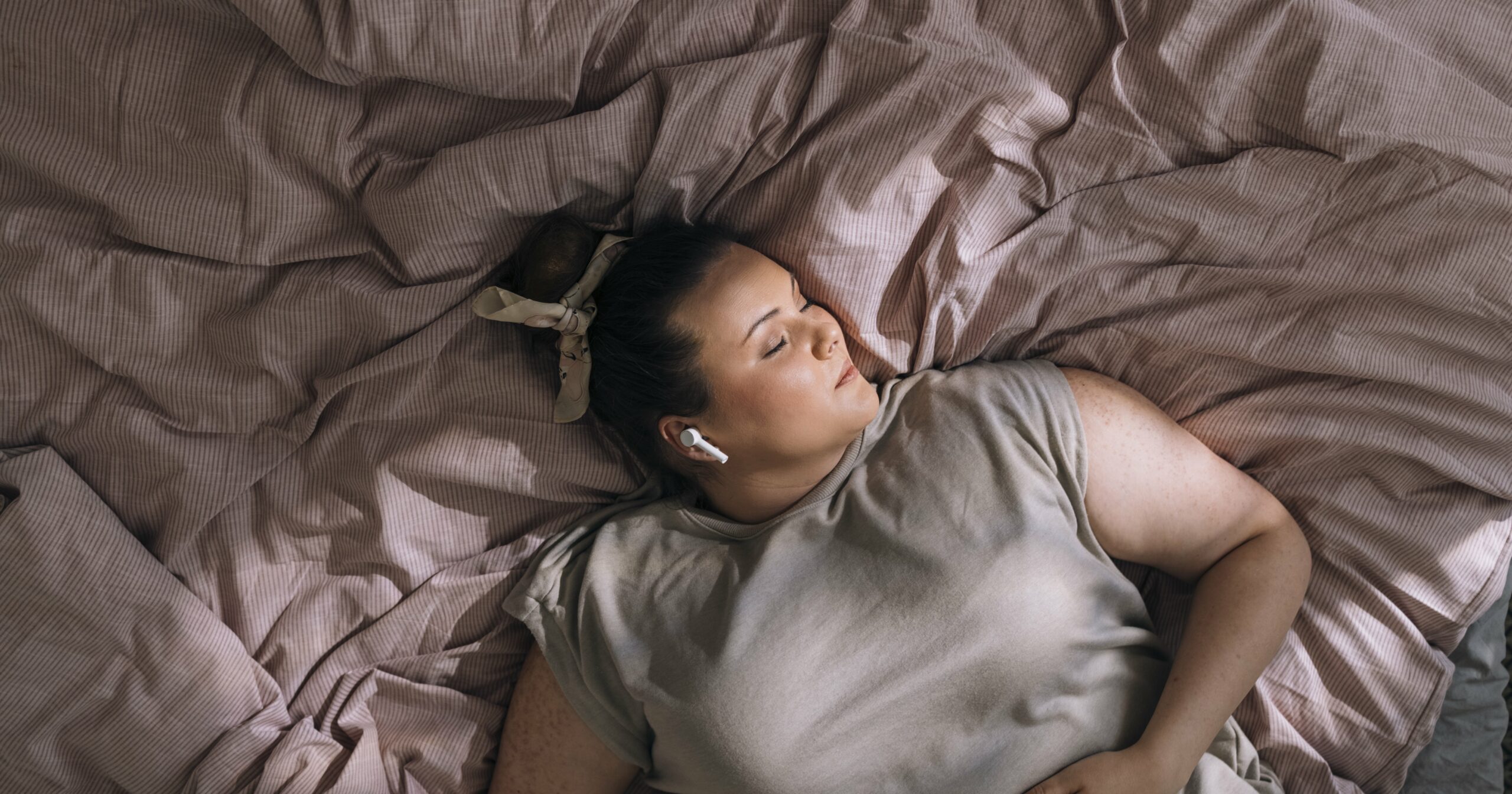When a new parent crosses over that life-changing threshold from imagining what it will be like to hold their sweet, snuggly newborn into the exhausting and emotionally taxing reality of actually taking care of a precious, screaming little human, perhaps the most jarring change is the serious lack of sleep that comes with the territory.
That’s where the term “protected sleep” enters the picture. The idea is that getting four- to six-hour chunks of consolidated sleep each night, plus another two to three hours, is essential for new parents who gave birth – not only to repair the body, but to help ward off postpartum anxiety and depression.
“During the postpartum period after delivery, sleep is not a luxury – it is a necessity in order to heal,” says Eynav Accortt, PhD, a reproductive psychologist and director of the Reproductive Psychology Program at Cedars Sinai Hospital in Los Angeles. Yet many new parents struggle to get the sleep they so desperately need in those early days and months.
How Do Sleep Disruptions Affect New Parents?
While sleep deprivation has deep effects on all parents, the birthing parent is especially vulnerable. Think about it: the body has just gone through something momentous, hormones are fluctuating wildly, and their entire identity and daily life has turned upside down. And the one thing that can help with that – restorative sleep – is in short supply.
“The sleep disruption that one can experience with an infant can be extremely severe,” says Nicole Leistikow, MD, a clinical assistant professor specializing in reproductive psychiatry and reproductive mental health at the University of Maryland. So severe, in fact, that as a 2022 commentary coauthored by Dr. Leistikow notes, 14.5 percent of women experience a new episode of depression in the first three months after delivery.
The relationship between poor sleep and worsening mental health is something she sees in her own practice as well. “I find that when people have anxiety or mood disorders, being woken up every two hours makes it way worse,” Dr. Leistikow says.
Why Is Protected Sleep So Difficult to Achieve For Most New Parents?
Protected sleep sounds like a great idea in theory, but it can feel more like a pipe dream than a practical strategy. Having a baby can really highlight the lack of a village available to help with child-rearing in the US, Dr. Accortt says. “We were never meant to birth and have babies and raise kids alone,” she says.
“Our country has not yet figured out a way to support parents, and that has a direct impact on their mental health.”
One big problem is a lack of governmental policies that support new parents, Dr. Leistikow says. “The US is really not comparable to our peer nations in terms of protected parental leave,” she says. “Our country has not yet figured out a way to support parents, and that has a direct impact on their mental health.”
If one partner needs to go back to work immediately after welcoming a baby, it can understandably fall to one person who feels like they have to carry the load day and night. In turn, societal pressure to be and do everything for your baby can lead to maternal gatekeeping, Dr. Accortt says, which means a new parent (especially the birthing parent) struggles to allow anyone else to help them with the baby. “We have this pressure in our society as new parents, and particularly as mothers, to do it all,” Dr. Accortt says. “And we need to bust that myth.”
Sharing responsibilities as much as possible, including at night, is really essential to getting that restorative sleep. “The more flexible your thinking can be and the more open-minded you can be and your partner can be, trust me, the more emotionally well you will be,” Dr. Accortt says.
6 Tips to Help You Get Protected Sleep
Committing to sleep isn’t easy. It requires working with a partner or family and friends, releasing some deeply held beliefs, and making your sleep a priority. But it’s worth it, Dr. Leistikow says. In fact, she says prioritizing your sleep may be the most important thing you do for yourself in the postpartum period.
Here are a few tips to help you get those necessary zzz’s.
Drop the Parental Guilt
The first step to getting protected sleep is to let go of the preconceived notion that your role is to take care of everyone’s needs all the time. Why? Giving too much of yourself to others (including your baby) can affect your mental health, Dr. Leistikow says. What can help is to view yourself as a resource for your baby and family that needs to be conserved. “It needs to be parceled out more judiciously,” she says, “and asking for help is part of that conservation, and part of actually caring for your family and caring for your baby is not letting yourself get overstretched.”
If you have a supportive partner, you also want them to feel confident caring for and bonding with the baby as much as you do, Dr. Accortt says. “That, of course, translates to sleep,” she says, because it allows for more flexibility around taking care of your child (and yourself).
Change Your Mindset Around Feedings
It’s no secret that there are many wonderful benefits to breastfeeding for both parties. And that can be great – until it’s not. “There is a default rigidity around feeding babies in many communities in the US that assumes there is one best way to do it,” Dr. Leistikow says. “The circumstance where the mom who has delivered the baby gets into the mindset of ‘I am the person who needs to breastfeed for every single night feeding’ is when they tend to get into trouble” with lack of sleep and mental health issues, she says.
That’s why staying flexible about feeding the baby is so important, Dr. Accortt says: because nothing will interfere more with your bond to your baby than sleep deprivation, postpartum anxiety, and depression. “The biggest threat to a child is a parent not being able to be present, connected, and attentive to their needs, and anxiety and depression 100 percent get in the way of that,” Dr. Leistikow says.
There are a few ways to approach feeding that both nourish your baby and protect mental health. One option is to breastfeed most of the time, but pump once or twice to have a bottle ready for night feeds. “Your partner or whoever is helping you is then able to feed the baby so you can get a bigger chunk of sleep overnight,” says Dr. Accortt. You can also take this approach with combination feeding from the get-go, or simply formula feeding.
“If we take a broader view of feeding, and say any capable, loving adult in the family could do an infant night feeding, then we suddenly have a lot more options for how to protect sleep,” Dr. Leistikow says.
Use a Protected Sleep Space
For people who may have trouble turning off their brain, even when their baby is asleep, the protected sleep room is a great tool. Basically, you and a partner or loved one take shifts during the night. When you’re on, you either sleep in the room with the baby or have the monitor turned on. You are responsible for taking care of the infant for those four to five hours.
When you’re off, you sleep in a separate room without the monitor, and potentially use ear plugs or a white noise machine. The purpose is to signal to your brain that you are off-duty. Fully trusting that a capable adult is taking care of your baby can help you relax. “This gives your body the signals that it can truly be off and then it can get some deep sleep,” says Dr. Leistikow.
Solidify Your Sleep Hygiene Habits
Whether you take a warm bath, journal, listen to a calming app, or do a guided meditation, taking 20 minutes before bedtime to wind down is the first line of defense against poor sleep, says Dr. Accortt, which is true if you have a baby or not. The one rule is to stay away from screens, because the bright light tricks your brain into thinking it’s time to be awake and alert, she says.
It’s best to establish this routine well before a new baby upends your sleep schedule, so you can help yourself fall asleep quickly when you do have the chance.
Make Sleep Your Priority
Let’s be real, not everyone has a supportive partner to help with a baby. So, not only do night wakings fall to you, but also the dishes, the laundry, cleaning the house, and the million other chores that need to get done. It can be tempting to stay up well after the baby has fallen asleep to knock some of these tasks out – but staying up until midnight to scrub the floors really isn’t serving you.
“Let’s give your brain what it needs and let the house be a mess.”
If the baby goes to bed at 9 p.m., go right to bed, says Dr. Leistikow. “Let’s give your brain what it needs and let the house be a mess,” she says. Then, if friends or family can drop by during the day to help, you can assign them to the household chores. It’s a win-win.
Consider Hiring Someone to Help
If you don’t have much support through friends and family, but you do have financial security, your money would be well-spent with a night nurse in the first few weeks or months postpartum, says Dr. Accortt. This person can bring the baby to you for feeding, then take them away to burp, change their diaper, and get them back to sleep. All told, that’s an extra 30 to 45 minutes of sleep you gain after each night feeding.
If money is tight, there are some scholarships and low-cost opportunities for postpartum doulas that will come to your house, says Dr. Accorrt. “They may not come in the middle of the night, but they will come first thing in the morning, and you can hand off the baby after a challenging night.”




